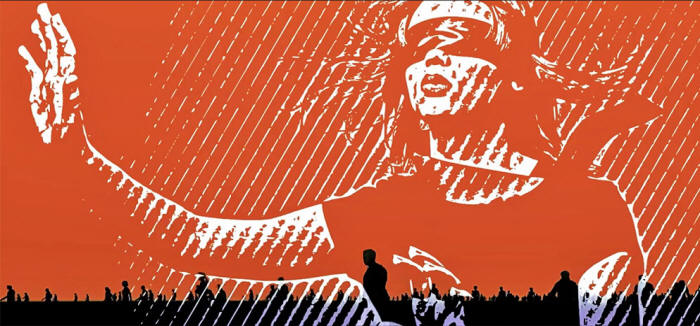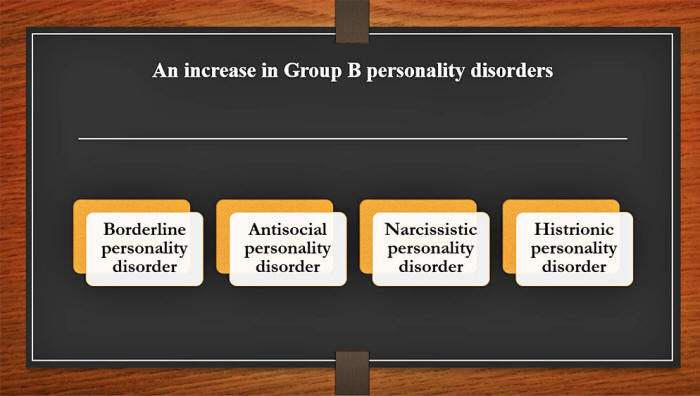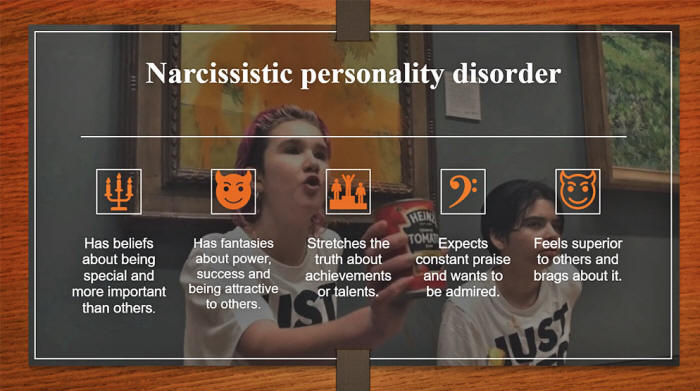|

by Kingsley L. Dennis
November 24,
2023
from
KingsleyDennis Website
Spanish
version

On the 1st of November, 2023, I travelled to a small spa
town in south-western Germany, at the north-western border of the
Black Forest mountain range on the small river Oos, to be present at
a large 5-day medical conference.
Some colleagues of mine
from a German medical unit ('Evolutionary Medicine') had invited me
to join their symposia to give a talk during the conference.
They wanted me to speak
about my theme of the 'wounded mind' and how this may relate to
the psychosis of the modern world as well as our potential for
collective evolution/development within a socio-cultural context.
The title of my talk was,
'The Wounded Mind - The Psychosis of the Modern World'.
Upon returning home, I
made a home recording of my presentation which was recently posted
online. You can view the presentation by
clicking here.
I began my talk by saying that many people today are exteriorizing
their trauma, that is,
projecting it
outwards and upon objects, events, and activities, etc, as a
form of compensation.
It is as if people are
projecting their inner shadows and then living through them
in an increasingly disembodied manner (I then showed a short clip
from the online animation
IN-SHADOW by Lubomir Arsov).
I proposed that much of
both offline/online behavior that we see today has shown a marked
increase in what are known as 'Group B' behavioral traits (see
Fig.1):

(Fig.1)
I then proceeded to give some examples of what forms of behavior can
be seen within the various sub-categories of these four major groups
of:
-
borderline
-
antisocial
-
narcissistic
-
histrionic
One of these slides is
shown below (Fig.2):

(Fig.2)
I continued from this to discuss how certain forms of anomalous
behavior (what may loosely be termed as 'madness') has been
normalized into our everyday societies, through our social and
cultural institutions and forms of social conditioning.
Here, I brought in the
work and research of French theorist Michel Foucault by
looking at how structures of knowledge and power become embedded
into our social institutions and cultural apparatus.
In other words,
the madness of the
world appears to be a 'normal feature' of human civilization.
As the Scottish
psychiatrist R.D. Laing once famously said:
'Insanity is a
perfectly rational adjustment to an insane world.'
The 'old mind,' which now
forms part of the 'wounded mind,' is increasingly impoverished and
does not have the capacities for aligning with either our current
situation or where we are needed to be, ideally, heading.
Following on from this, I took a quick look at the work of Polish
psychiatrist Andrzej Łobaczewski and his book 'Political Ponerology - The Science
of Evil, Psychopathy, and the Origins of Totalitarianism'.
What was inferred here is
that,
if abnormal ways of
human behavior become engrained at the highest levels of our
political institutions, then these abnormal modes of behavior
and perspectives are more likely to trickle down and become
'normalized' within human cultures...
As I quoted from
Łobaczewski:
'If an individual in
a position of political power is
a psychopath, he or she can
create an epidemic of psychopathology in people who are not,
essentially, psychopathic.'
And unfortunately, yet
perhaps not surprisingly, Łobaczewski's research had found,
high percentage
levels of psychopathic behavior within the very top tiers of the
political establishment across varied societies...!
My next area of focus was
upon the manifestation of collective thought forms leading to
mass and/or mob psychosis.
I put forward the notion
of mental intoxication through the propagation of certain thought
forms. I stated that thought forms are just as contagious as
any biological virus.
In fact, they can spread
quicker - almost simultaneously.
One person can post
an idea online, or express an opinion or ideology, and this can
be read by other people almost instantaneously at the other end
of the globe.
That is, people across
the world can become 'infected' by an idea/opinion/ideology (a.k.a.,
thought form) instantaneously.
This led me to discuss
the work of Mattias Desmet, Professor in Clinical Psychology
at Ghent University in Belgium.
Desmet's notion of
Mass Formation (mass psychosis) is predicated on the following
four factors:
-
a lack of social
bonds
-
people
experiencing life as meaningless or senseless
-
free-floating
anxiety (transfer of anxiety)
-
free-floating
frustration and aggression
In recent years, and even
going back decades, these conditions have been building up within
our modern societies.
As I had written about
previously, social anxiety and psychological suffering were already
growing exponentially even before the 'pandemic'
outbreak of 2020.
The foundations for
establishing a mass psychology were existent in many, if not most,
of our industrialized societies and cultures before the traumatic
experience of the current 'pandemic'.
At such junctures of
psychological vulnerability, a shift of attachment - that is, a
transference of identification - can be achieved rapidly.
What has likely occurred
within the last few years has been a wide-scale process of
reprogrammed social solidarity (or lack thereof).
The next part of my presentation was to take a brief examination of
four traditions that have spoken of the presence and activity of a
'mind virus' within the human species.
These four traditions
were,
Without going into
details here (I suggest interested readers see the video
presentation), I looked at the subjects of,
The
Bullfighter Effect
What I term the 'Bullfighter Effect' is when a person(s) is
distracted to focus all their attention onto a specific thing - such
as when the bull is blinded by focusing all its energies onto the
matador's red cape.
The same form of strategy
and response is being seen across our societies, and is heralded and
promoted by the biased, and heavily controlled, legacy media
corporations.
Thus, the syndrome of the
'Wounded
Mind' is, fundamentally,
a perception of
living separate lives within a materialistic world that is
considered unconnected...
From this, a sense of
alienation arises, whereby life is seen as random and not part of a
larger, integrated tapestry of existence.
In this respect, I
referred to the work of Dr. Iain McGilchrist, who in his
groundbreaking work 'The Master and His Emissary - The Divided Brain
and the Making of the Western World' (followed by
The Matter with
Things), speaks about how we are living within an increasingly
deluded world.
We are over-analyzing the
minutiae at the expense of the grander picture.
As the famous 20th
century philosopher Alfred North Whitehead once said:
'Civilization
flourishes until it starts to analyze itself.'
What we are missing is
the essential.
In my talk I then told
the following story:
The Essential
A lion was captured and imprisoned in a reserve where, to his
surprise, he found other lions that had been there for many
years, some even their whole life having been born in captivity.
The newcomer soon
became familiar with the activities of the other lions and
observed how they were arranged in different groups.
One group was dedicated to socializing, another to show
business, whilst yet another group was focused on preserving the
customs, culture and history from the time the lions were free.
There were church
groups and others that had attracted the literary or artistic
talent. There were also revolutionaries who devoted themselves
to plot against their captors and against other revolutionary
groups.
Occasionally, a riot
broke out and one group was removed or killed all the camp
guards and so that they had to be replaced by another set of
guards.
However, the newcomer
also noticed the presence of a lion that always seemed to be
asleep.
He did not belong to
any group and was oblivious to them all. This lion appeared to
arouse both admiration and hostility from the others.
One day the newcomer
approached this solitary lion and asked him which group he
belonged to.
'Do not join any
group,' said the lion. 'Those poor ones deal with everything
but the essential.'
'And what is essential?' asked the newcomer.
'It is essential to study the nature of the fence'...
It is 'essential' to study the nature of our encampment, for if we
are unable to perceive this, then we shall never need (or feel the
need) to seek our liberation...
And part of this
encroaching perimeter fence of the encampment is being provided by
the 'machinic architecture' of our environment,
which is fed by data.
Hence, what is now known
as 'Dataism' is fast becoming the illusive camp guards of the
enclosure.
According to the
well-known technology journal
Wired...:
'Dataism is an
emerging market that worships data rather than gods or humans.
According to Dataism,
human experiences are not sacred, and humans are merely tools
for creating the Internet-of-All-Things...
According to Dataism,
the entire human species is a single
data-processing system, with
individual humans serving as its chips.'
This viewpoint ties in
directly with the perspectives being propagated by celebrity
historian Yuval Noah Harari who has
declared that,
a new underclass of
'irrelevant' and 'useless' people will become the future.
In previous centuries,
says Harari, people revolted against exploitation, oppression,
tyranny, etc; now, they fear becoming irrelevant.
He has stated that:
'If we are not
careful, we will end up with downgraded humans misusing
upgraded computers to wreak havoc on themselves and on the
world.' [i]
What this will
inevitably lead to is humans behaving in an increasingly
automated manner and exhibiting what I refer to as a 'machinic
consciousness.'
Yet this is, in my
perspective, a non-evolutionary, or non-developmental pathway for
humankind.
That is, it represents an
evolutionary cul-de-sac for the human species, for it gives way (or
hands over responsibility) for its future to technology, and
suggests that the human being, as a biological entity, has no
further capacity for growth or development other than
merging with its mechanical devices.
However, this current
predicament may not constitute the long-term future but instead be
indicative of the demise of its present stage.
Evolving
World, Evolving Mind
The Russian-American sociologist Pitirim Sorokin (who founded
the Dept. of Sociology at Harvard University) made a broad-ranging
study of the rise and fall of human societies.
His conclusion was that
societies could be recognized according to their 'cultural
mentality.'
Sorokin categorized these
stages of cultural mentality as principally swinging between two
polarized states:
that of the
Ideational and the Sensate.
And as the pendulum swung
from one to the other, it would pass through a 'third state' that
was the Idealistic.
And their characteristics
are:
-
Ideational:
where reality is primarily considered as spiritual and
immaterial
-
Sensate:
where truth is seen as material and to be gained through
materiality
-
Idealistic:
a synthesis of the two.
I wondered whether the
Ideational stage represented a form of sacred order that perhaps
was abstract and symbolic, yet nevertheless gave people a sense of
faith and of the world and/or reality as belonging to an integrated
cosmic order.
The Sensate stage, on the
other hand, was embedded deep into an empirical order - deep
materialism - that was highly rational and segregated in its
vision.
And at the same time, it was highly attracted to the senses
and of sensual desires.
In other words,
it displayed, and
promoted, hedonistic behavior as part of its faithless belief in
the sole reality of material existence.
And this third 'swing
state' of the Idealistic would be a synthesis of the other two.
That is,
a time of conscious
and deeply material development and advancement yet within a
grander sacred, cosmological order.
Sorokin believed that
western culture, at least, was breaking down from its current
Sensate stage and transitioning into the Idealistic.
This would thus display a
heightened form of materialism as this stage had passed its peak,
alongside a breakdown within the social order - as we may very well
be seeing at the present time.
This brings me to
consider that what may currently be underway is a phase change in
our cultural mentality, and thus also within our socio-cultural
order. And what is required at such times of a phase change is
metanoia.
The term 'metanoia' comes from the Greek word meta-noein,
which literally means 'beyond nous,' or to think beyond (the
religious term 'repentance' is also derived from the form of
metanoia although its interpretation is somewhat different).
To 'think beyond'
implies a
shift in consciousness (our
thinking patterns) by embracing thoughts beyond present limitations
or current thought patterns.
In other words,
what we now need is a
radical change of our worldview - both physical and
metaphysical...
Furthermore, we are
required now, more than ever,
to have reasons to have meaning in the
world as well as beyond...
To summaries my talk,
I discussed that in
order to
heal the 'Wounded Mind'
it was paramount that individually and collectively we embraced
(or at least sought) for a sense of meaning,
purpose, and connection within our
physical reality as well as beyond it.
That is, to bring
together a physical and metaphysical worldview and perspective
into an integrated whole rather than living as if separated from
the greater cosmological totality.
The evolving mind
behaves as within a collective ecology and not in a binary
relationship. As such, an evolving mind is a relational mind,
for which relationships and relationality are
primary.
This is contrary to
the burgeoning
transhumanist view which sees the mind
(human consciousness) as purely a by-product of the brain's
functioning and, as such, may one day be uploaded into cloud
computing governed by artificial intelligences (AI).
This, for me, is an
anti-human trajectory and completely ignores the future
developmental capacities of the human being, as well as ignoring
the incredible potential of the biological human body.
This transhumanist
anti-human perspective is indicative of the collapsing epoch
of the Sensate age with its emphasis upon materiality and
hedonistic pursuits.
And in this, it is
'aligning with the path of the dinosaurs'...
In comparison, the
continually evolving human being, which is also a human
becoming, shall further develop its latent capacities
and reach for transcendental connection with its
cosmological foundations.
The future is yet to be
realized.
And for me, it shall be a
human-centric future, or it shall not be...
References
-
Harari, Yuval
Noah (2018) -
21 Lessons for 21st Century -
London: Jonathan Cape.
|




